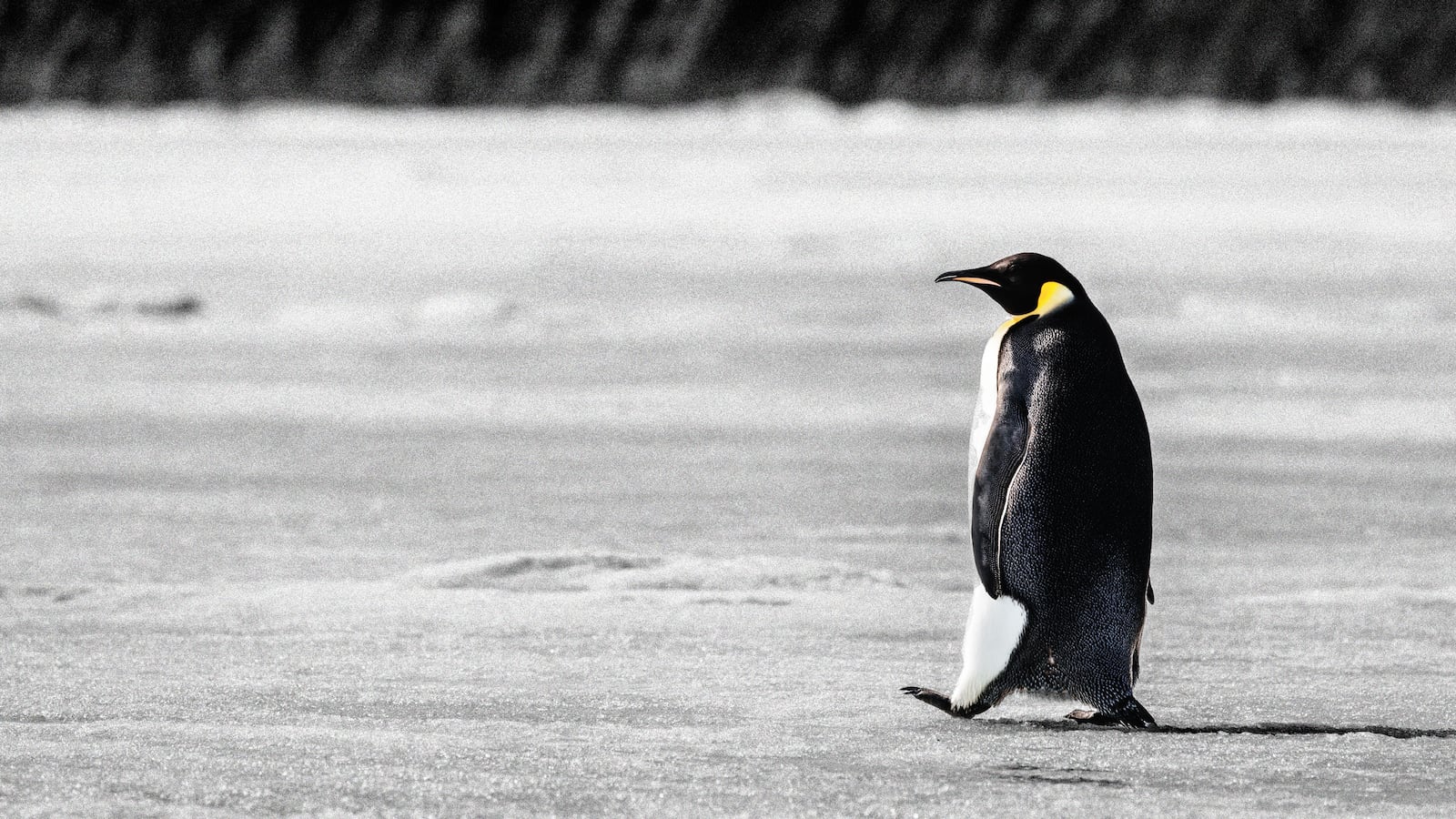We’ve all seen some version of the image of a polar bear stranded in the middle of the sea on a piece of floating ice—a stark illustration of the effects of climate change as hotter temperatures ravage the Arctic. But some new research wants to remind us to not forget the penguins. The iconic birds are having a rough go of things as well—perhaps worse than we thought.
A study published Thursday in Nature Communications Earth & Environment reveals that the loss of Antarctic ice is causing emperor penguin colonies to collapse due to unprecedented breeding failure. In the central and eastern Bellingshausen Sea, a region where there was total sea ice loss in 2022, researchers observed that there was a high probability no chicks had survived from four of the five known emperor penguin colonies in that area.
“We have never seen emperor penguins fail to breed, at this scale, in a single season. The loss of sea ice in this region during the Antarctic summer made it very unlikely that displaced chicks would survive,” lead study author Peter Fretwell, from the British Antarctic Survey, said in a statement. “We know that emperor penguins are highly vulnerable in a warming climate—and current scientific evidence suggests that extreme sea ice loss events like this will become more frequent and widespread.”
Stable sea ice that’s attached to the shore is imperative to emperor penguins. At their breeding sites, penguins lay eggs from May through June (the Antarctic winter). The eggs hatch after about 65 days.
However, December and January, the Antarctic summer, is the crucial time when the newborn chicks start to fledge and develop their own waterproof feathers.
Based on satellite data, Fretwell and his team noticed that by December 2022, there was a total loss of sea ice that caused four of the five emperor penguin colonies in the Bellingshausen Sea to be totally abandoned. Without a staging area for the fledgling period, the authors believe it’s highly unlikely any chicks survived and successfully fledged at these colonies.
It’s an unprecedented outcome. Only one of these colonies had ever experienced a total breeding failure prior to 2022—and that was 13 years ago.
As depressing as these findings are, they don’t come as a total shock for anyone who’s been paying attention. Antarctic sea ice has reached record-breaking lows in the last several years. The researchers note that the area of ice that has disappeared in the last 40 years is larger than the size of Greenland.
While the results are just an observation of a few emperor penguin colonies in one region, it’s very likely others are facing similar impediments to breeding—as other species of animals likely are.
“It is another warning sign for humanity that we cannot continue down this path, politicians must act to minimize the impact of climate change,” study co-author Jeremy Wilkinson, another researcher at the British Antarctic Survey, said in a statement. “There is no time left.”







